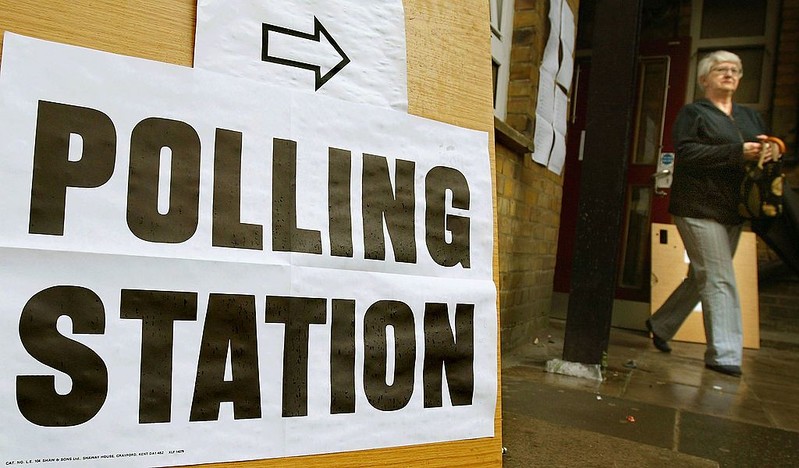Mastering English: Language skills every Polish student needs for academic success

Yet, Polish students can turn their lives around when they master the English language. How? Well, being fluent in English allows you to feel confident in your knowledge, show impressive results in college, and increase your chances of landing a well-paid job.
Sounds a bit scary and complicated? No need to worry, though - you don’t need to be perfect to do well academically. It’s all about the basics and getting those skills to a level where you can easily write papers for class and speak without thinking twice about what to say next. Let’s break down how you can achieve that.
1. Reading
Academic texts can be tricky. Long sentences, complex terminology, and big piles of information can be a bit too much. However, you’ll have to read a lot for all your classes, so reading is one of the most important skills you need to master. Let’s see how you can get the hang of it so you never have to rely on a confidential essay writer service workingall year round to assist you with your assignments:
- Start with the easy stuff. Begin with reading simpler articles and books and build your way up. Diving into complex research right away will get you nowhere. Popular science articles are a great choice to begin with.
- Use a dictionary. It may sound boring and take you longer to read an article or a book, but this method works. Look up the words you don’t understand and write them down. It will help you memorize them.
- Take notes. Underline important parts and jot down all the necessary information. It’s the best way to understand the main ideas of the text or book you’re reading. Besides, it will be easier for you to come back to this material and refresh your memory.
Reading doesn’t have to be a nightmare. Just keep in mind that the more you practice, the easier it gets.
2. Writing
Writing in English, especially when we’re talking about academic writing, can be quite challenging at first. The sentence structure is quite different from Polish, so it will take some time to adjust. The good news is that it’s all about clarity, facts, and consistency. You won’t need to use any fancy words in academic writing. Just make sure that your arguments are to the point. Here’s how you can improve your writing skills, so you won’t have to turn to a custom essay writer focused on your needs for help in the middle of the night:
- Learn the structure. Almost every paper you’ll need to write follows a pretty straightforward structure: a catchy introduction, informative main body paragraphs, and a summarising conclusion. Once you get the hang of it, you’ll be on your way to create writing masterpieces.
- Keep it simple. No need to overcomplicate things. Use clear sentences and get to the point. Your professors will appreciate that.
- Write regularly. Even if you don’t have an assignment due, practice writing to improve your skills. Join a writing class or ask your fellow Polish students what helped them get better.
- Get feedback. Show your writing to someone you consider a pro. Ask them to highlight weaknesses in your writing and work on those aspects until you’re happy with the final result.
Writing can be tough, especially when the language is so different from your native Polish. However, you can get there if you set a goal and practice a lot. Trust us, very few are born with a natural talent for writing. Others simply worked hard to achieve success.
3. Listening
This skill is necessary to understand lectures, seminars, and all kinds of discussions you’ll have during the course of studies. And let’s be real - sometimes professors talk super fast! It can make you feel frustrated. Besides, it’s not like writing an easy essay at home where you can take your time and focus. In class, you’ll have to react to what someone is saying. Let’s see what you can do about that:
- Watch movies and TV shows in English. This is the best way to improve your listening skills because it’s both educational and fun. You’ll get used to different accents and speaking speeds. At first, you can turn on subtitles. Later on, you’ll be able to understand the general meaning and turn them off.
- Listen to podcasts. Find podcasts related to the topics you are interested in. The more you listen to real-life situations, the easier it will be to grasp what people are saying.
- Practice active listening. Whenever you walk around the city, try to focus on what people say to better understand different accents and speaking speeds. If you are in a store and don’t understand something, simply ask questions. You shouldn’t feel embarrassed to ask someone to repeat what they just said.
Practice a lot, and it won’t take you long to follow along with lectures and discussions. You’ll get better at it faster than you think! Besides, the English-speaking environment really helps you grasp the meaning of conversations.
4. Speaking
Speaking in a foreign language is often the most intimidating thing because we all are afraid of making mistakes. It may be super uncomfortable to speak English at first, but it gets easier the more you practice. Besides, this skill is also about being confident when speaking publicity, so here are a few tips:
- Practice as often as you can. Don’t be afraid to speak in class. It can’t always be perfect, but you need to be comfortable with public speaking, regardless of your current level of English. If you need to, join a speaking class to improve your skills.
- Work on your pronunciation. Having an accent may discourage you from speaking publicly, but don’t let it get to you, and keep working on your pronunciation. There are tons of videos on YouTube where you can repeat after the teacher until you’re happy with how you sound.
- Don’t be afraid to make mistakes. Native speakers may make mistakes, too. So just let go and start speaking. The more you do it, the more natural it becomes.
The key aspect of improving speaking skills is that you need to get over yourself and just start talking. Build your confidence and practice even if you make a lot of mistakes at first. It doesn’t matter that much. What matters is that you keep going and get comfortable using English in real-life conversations.
Final thoughts
Mastering the English language won’t come to you overnight. English is rather different compared to Polish, so you will need to put in some extra effort. Focus on the basics, like improving your reading, writing, listening, and speaking skills.
The more you practice, the better you become at it. You’ll see that academic success will come in no time if you keep going. Don’t stress about being perfect. No one is, really. Even native speakers don't speak English perfectly. Just be consistent with your progress, and you’ll achieve anything you want!





























